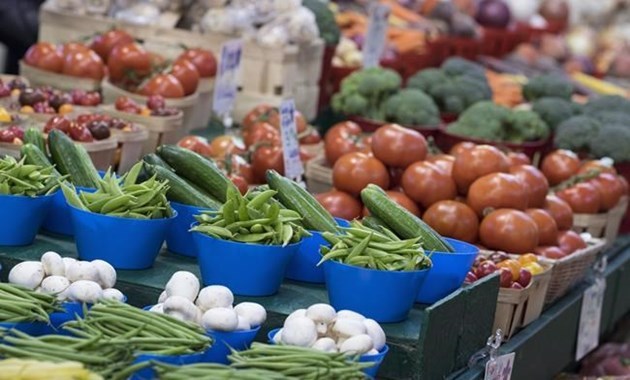After finding success in the London area, sustainable delivery service Foodfund is making moves to set up shop in the Guelph and Kitchener-Waterloo areas.
With partnered growers from Leamington to Bradford, and a number in and around the region, Founder Divy Ojha said the move just made sense for the company. The grocery delivery service sends customers a weekly package of produce, sourced from growers that may otherwise have their product go to waste.
A graduate of Western University, Ojha says the concept for Foodfund sprouted from a desire to understand where Canada’s food waste was coming from. He says he remembers watching employees from a major retailer in London disposing of large amounts of produce behind their store, while hunger continues to exist among Canadian families. As a business student, he says he began to research the issue.
“I found (…) there was a lot of food waste that happened at the source – due to cosmetic reasons, due to surplus, due to logistics reasons… and that’s food that we don’t even see” says Ojha.
‘Knowing that one-in-seven Canadians don’t have access to good food was really startling. We reached out to these growers in the hopes of trying to get this food off their hands, compensating them and really to connect this to the households in our community.”
Ojha says the service is customizable, as customers are first asked to fill out a survey that recommends a specific delivery box to them – based on members in household, how often they cook and preferences between organic or conventional. Afterwards, customers are given the opportunity to customize their delivery of produce based on seasonal availability for weekly delivery.
The service doesn’t just offer benefits to the consumer, as Ojha says Foodfund strives to serve its grower partners as well. The company offers economic compensation for product that may not sell, and ultimately go to waste, due to factors like cosmetic imperfection, cancelled orders and surplus growth.
“There’s a common misconception that anything that looks a little funny, or is in surplus – ‘oh, they can just sell it to a canning factory, or someone can turn it to juice’” says Ojha. “…larger companies that are into those practices actually have specific contracts with specific growers that have to provide them with specific volumes.”
Ojha says growers may end up being out of pocket paying for waste disposal costs for surplus or imperfect produce. If growers can’t pay for that service, they may end up having to leave it in the ground or tilling over the product – instead, Foodfund ‘reclaims’ that produce for the consumer.
“It’s just normal food – and then you’ll find the occasional double carrot or an apple that’s a little lopsided … anything that’s not fit for retail standards is just a no-go for a lot of the growers because they primarily grow for them. If that gets turned down, they’re kind of left to their own devices.”
One of the hurdles faced by the sustainable delivery service is a food perception problem, as customers were initially hesitant to pay for less-than-perfect produce. Ojha says part of Foodfund’s plan for its expansion into K-W will be in educating the market on what they’re getting through the service.
With that in mind, Ojha did say that the COVID-19 pandemic has resulted in an increase in demand for the food delivery service.
“There was a sentiment of anxiety and a little bit of fear – it definitely did act as a catalyst for people to take a leap of faith. Not in a very ideal way for us… we did get a massive surge in demand” says Ojha. “… consumers are definitely more inclined to digital now than they have ever been before.
“It’s a service that could be meaningful to so many different people from different walks of life. It helps with students who are on a tight budget … a busy family who doesn’t have time for groceries” says Ojha.
Ojha says Foodfund will look to continue its expansion westward toward the GTA, with the eventual goal of covering the metropolitan areas where they can make the greatest impact. For those who aren’t customers of the service, Ojha still encourages Canadians to do their part to reduce food waste.
“Next time you’re in a store and you’re choosing produce… don’t spend your energy looking at the surface level cosmetics … it all helps, and the conscious decision that you can make to eat more sustainably and support more sustainable practices in food is what’s ultimately going to change the landscape we have for food waste here.”



